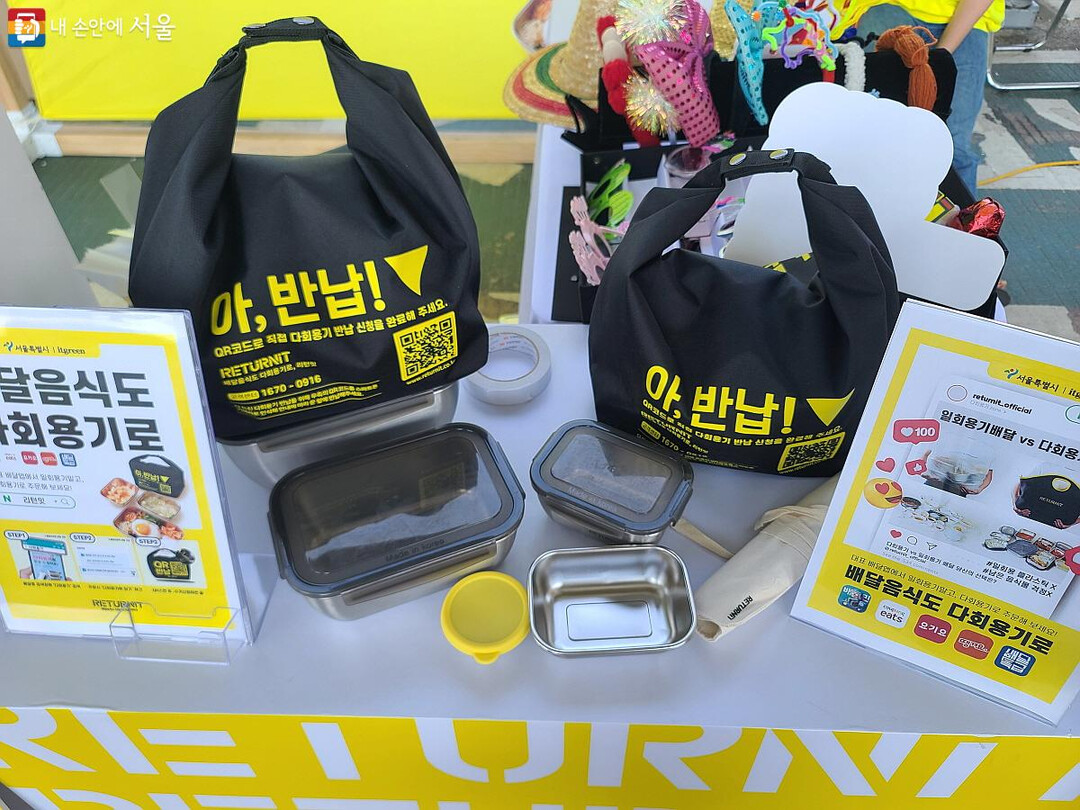
Seoul, South Korea – The delivery app industry, once criticized for its reliance on single-use plastics, is undergoing a significant transformation. The growing trend of reusable containers and a decline in single-use tableware orders reflect a shift in consumer behavior towards more sustainable choices.
According to industry data released on Tuesday, the number of delivery orders with reusable container options has been steadily increasing each year. Yogiyo, a leading delivery app that actively promotes the use of reusable containers, reported a 22% increase in such orders in 2024 compared to the previous year. Concurrently, the number of partner restaurants offering reusable container delivery services surged by 53.6%. Yogiyo has even categorized reusable containers as a separate food genre, prominently displaying them on its main delivery page.
Baemin and Coupang Eats have also introduced reusable container options for some of their partner restaurants. Additionally, all three major delivery apps now offer a default option to decline single-use cutlery. Baemin, which introduced this option in 2019, has prevented the use of approximately 63 billion pieces of single-use tableware.
While previous attempts to reduce single-use plastics by delivery apps and the government existed, the surge in food delivery during the COVID-19 pandemic and concerns over hygiene led to a stagnation in these efforts. The recent surge in reusable container usage is attributed to several factors, including growing consumer demand for sustainable consumption, supportive government policies like Seoul's reusable container utilization support program, and the emergence of specialized collection services.
The process of collecting reusable containers today differs from the past when food was primarily delivered by restaurant-owned delivery personnel. In the past, delivery personnel would remember the delivery address and automatically collect the containers after mealtime. Currently, consumers can request a pickup by scanning a QR code on the reusable container bag, and a contracted delivery service will collect the container.
One consumer expressed satisfaction with the convenience of the new system, noting that it allows for a more relaxed container return process compared to the previous practice of delivery personnel ringing the doorbell to collect containers immediately after delivery.
However, the availability of reusable container services remains limited to areas like Seoul. Moreover, some small business owners express concerns about the potential dominance of delivery platforms like Baemin, as reusable container collection services, which currently rely on government subsidies, may eventually evolve into platform businesses and have greater bargaining power.
An industry insider expressed optimism, stating that unlike delivery platforms, reusable containers are merely an option for restaurants and are unlikely to create a dependent relationship. Instead, they can serve as a marketing tool to cater to environmentally conscious consumers.
[Copyright (c) Global Economic Times. All Rights Reserved.]






























